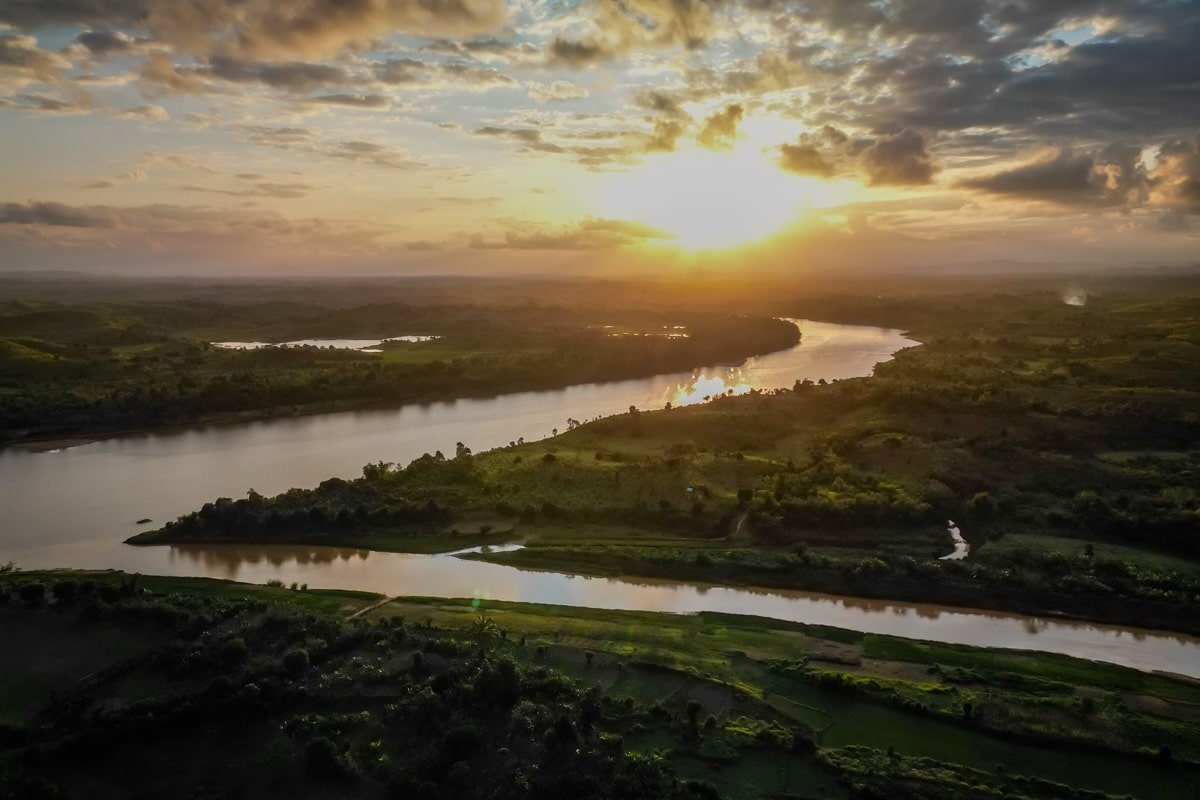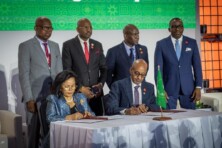The main priorities for COP30 are to accelerate the energy transition, ensure a just transition for the most vulnerable nations suffering from climate change, and, above all, mobilise large-scale climate finance for developing economies

Africa at the Frontline of Climate Change
Eight of the ten countries most affected by climate change are in Africa, where droughts, cyclones, and floods are undermining agricultural production, threatening food security, and driving climate-induced migration. These shocks are straining key sectors essential to the continent’s growth and redirecting substantial public spending toward crisis response. Despite limited resources, African nations are striving to adapt — yet the continent receives less than three percent of global climate finance while losing between seven and fifteen percent of its GDP each year due to climate impacts.
Recognizing the urgency of the climate crisis — particularly for the world’s most vulnerable countries — the African Development Bank Group (AfDB), the continent’s premier development finance institution, remains deeply committed to helping African nations strengthen resilience and pursue low-carbon development. Through an array of climate finance initiatives and instruments, the Bank is helping countries access flexible funding to meet their Paris Agreement commitments, including Nationally Determined Contributions (NDCs) and National Adaptation Plans (NAPs).
As Belém, Brazil — the gateway to the Amazon — prepares to host the 30th UN Climate Change Conference (COP30) from 10 to 21 November 2025, the summit is expected to mark a decisive moment for the Paris Agreement, ten years after the global pledge to limit warming to 1.5°C. Between 50,000 and 60,000 participants — from heads of state and ministers to experts, financial leaders, businesses, civil society, and Indigenous communities — will gather in Pará’s capital to rekindle climate ambition. COP30 will focus on accelerating the energy transition, ensuring a just transformation for vulnerable economies, and, most critically, mobilizing large-scale climate finance for developing nations.
Pioneering Climate Finance Initiatives
Among the Bank’s longstanding climate finance instruments is the Climate Investment Fund (CIF), launched in 2008 with a budget of $12.5 billion. To date, it has supported 47 investment plans and 45 projects, channeling over $1 billion in financing through the AfDB and attracting an additional $2.42 billion in co-financing. CIF resources have helped low- and middle-income African countries scale up climate adaptation through clean technologies, renewable energy, climate-resilient infrastructure, and sustainable forestry.
In the Democratic Republic of Congo, for instance, CIF support enabled Dorcas Tshabu to fulfill her dream of restoring local forests. Managing a 50-hectare plot near Mbuji-Mayi, she proudly says, “This used to be savanna, everywhere. But I turned it into a forest — with my own hands.” Her work is part of the Integrated REDD+ Project in the Mbuji-Mayi, Kananga and Kissangai basins (PIREDD-MBKIS), funded with €21.5 million by the AfDB under the Forest Investment Program (FIP) to combat deforestation and land degradation across three Congolese provinces.
Established in 2011, the Sustainable Energy Fund for Africa (SEFA) has become a cornerstone of the Bank’s blended finance approach to clean energy. SEFA provides catalytic funding and technical assistance to unlock private-sector investment in renewables and energy efficiency, addressing market barriers and improving the investment climate. Its focus areas include green baseload power, mini-grids, and energy efficiency.
A notable example is the Ilute Solar Project in Zambia — a 32 MW facility supported by SEFA, which committed $8 million to a total financing package of $26.5 million in June 2025. Led by an independent power producer and supplying electricity via the Southern African Power Pool, the project is a model for how African nations can attract private capital and advance regional energy integration.
Building Community Resilience
In 2014, the Bank launched the Africa Climate Change Fund (ACCF), a multi-donor trust fund that continues to empower community-led adaptation efforts. Over 11 years, it has financed 33 projects totaling $40.64 million. In Djibouti, for example, a regional project implemented by the Intergovernmental Authority on Development (IGAD) has transformed farming in rural Kalaf. “Before, farming was an impossible dream. Today, I feed my children thanks to the land,” says Assia Obakar Hassan, one of its beneficiaries.
The Bank has also driven innovation through the African Circular Economy Fund (ACEF) — the first fund solely focused on embedding circularity into Africa’s growth model. Established in 2022 with support from Finland, the Nordic Development Fund, and later the Coca-Cola Foundation, ACEF backs entrepreneurs turning waste into opportunity. In Rwanda, for example, Tresor Gashonga and Rafiki Gatsinzi, co-founders of Incuti Foods, are using ACEF funding to process surplus chili harvests into sauces — a solution that reduces food waste and provides stable markets for farmers. Their products have even found their way into Kigali’s popular lounge bars, showing that sustainability and urban lifestyle can thrive hand in hand.
The Climate Action Window: A Lifeline for Vulnerable Nations
To scale up its impact, the African Development Fund (ADF) — the AfDB Group’s concessional arm — launched the Climate Action Window (CAW) in 2022. This facility provides concessional finance for adaptation, mitigation, and technical assistance to the most climate-vulnerable countries. With an initial envelope of $429 million, CAW aims to mobilize $4 billion by 2025 and $13 billion in the long term, ensuring faster and more reliable access to climate finance.
In 2024 alone, the AfDB approved over $31 million through CAW for projects in Sierra Leone, South Sudan, Djibouti, and Madagascar. The initiative is expected to cut carbon emissions by about 720,000 tonnes, create 180,000 direct jobs — prioritizing women and youth — and train 90,000 farmers in climate-smart agriculture.
“These initiatives not only respond to climate change, they empower communities to take control of their future. They show that adaptation funding can and should be directed to the vulnerable communities that need it most,” said Anthony Nyong, Director of the Climate Change and Green Growth Department at the African Development Bank Group. “The Climate Action Window is more than just a financing mechanism; it is a lifeline for communities that face the harsh realities of climate change every day.”









